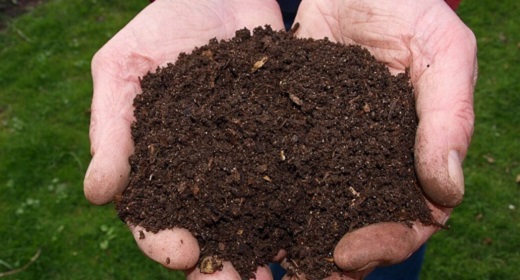by Heidi Godman: Try these tips to ward off ongoing stress and its many health risks, such as chronic inflammation and chronic disease…
Do you handle stress as well as you used to? For most folks, it gets harder as the years go by — and that’s a potential problem for health. Stress increases the risks for chronic disease, to which the body is already more vulnerable after a lifetime of wear and tear (and perhaps unhealthy habits, such as a poor diet or not exercising).
Why is stress bad for us?
We need the body’s stress (“fight or flight”) response to get us through tough times. When you sense a threat or danger, your body rises to the challenge by releasing stress hormones, tightening your muscles, making your blood pressure rise and your heart and lungs work harder, and releasing a surge of fat and sugar to give you energy. When danger subsides, your body goes back to normal operations.
If you get stressed out frequently, however, the stress response can become constant and cause ongoing harm, including chronic inflammation — the persistent activation of the immune system, which sharply raises the risks for many diseases such as dementia, heart disease, and stroke.
Fighting stress
Protect yourself from the damage of chronic inflammation.
Science has proven that chronic, low-grade inflammation can turn into a silent killer that contributes to cardiovascular disease, cancer, type 2 diabetes and other conditions. Get simple tips to fight inflammation and stay healthy — from Harvard Medical School experts..

The best way to cope with stress is by getting at least seven hours of sleep per day, eating a predominantly plant-based diet, exercising regularly, meditating, and staying socially connected. “If you’re practicing all these healthy habits, it helps you become more resilient and better able to adapt to life’s challenging situations,” says Dr. Shalu Ramchandani, an integrative medicine specialist at the Harvard-affiliated Benson-Henry Institute for Mind Body Medicine at Massachusetts General Hospital.
Something else that helps: quelling the body’s stress response whenever you feel triggered. Try any of these tips for on-the-spot relief.
Do a relaxation exercise. The relaxation response — the opposite of the stress response — was defined by Harvard Medical School professor Herbert Benson. It slows your breathing, reduces your heart rate, and lowers your stress hormones.
To elicit this state, Dr. Ramchandani recommends a basic breathing exercise, such as taking 10 very slow breaths in and out. Or try an imagery exercise: “Imagine being in your favorite vacation place, maybe the beach or in nature,” Dr. Ramchandani suggests. “Imagine all the sensations you’d experience there, such as the sight and sound of the waves, the smell of the ocean, and the breeze brushing against your skin. Hold this image for a few minutes and notice the relaxing effect.”
Stretch your muscles. Your muscles tense up under stress. Relieve that tension by stretching. “While sitting or standing, inhale, raise your arms overhead, lace your fingers together, stretch, release your fingers, and exhale as you lower your arms to each side. Repeat three times,” Dr. Ramchandani says.
Take a mindfulness break. Being mindful helps elicit the relaxation response by bringing you to the present moment; it can break a cycle of stressful thoughts. It’s like a real-time imagery exercise: you note all of your senses as you do something soothing. “It could be having a cup of tea and noticing its warmth in your hands, the scent of the tea, and the way it feels going down your throat,” Dr. Ramchandani says, “Or it could be taking a mindful shower or a leisurely and mindful walk through nature.”
Take a brisk walk. Getting 150 minutes per week of moderate-intensity exercise, such as brisk walking, is important for all aspects of health, including stress management.
But even a quick 10-minute walk when you’re feeling triggered can help “burn off” stress hormones, counter muscle tension, and release the body’s feel-good chemicals, which promote relaxation. If arthritis or another condition make walking difficult, ask your doctor about other aerobic exercises you may be able to do.
Use laughter. “Laughter has been referred to as ‘internal jogging’ by Dr. William Fry, and may provide a source of healing. It reduces stress hormones and becomes an expression of joy, optimism, and hope,” Dr. Ramchandani says. “Watch a movie or TV show that makes you laugh, maybe your favorite episode of ‘I Love Lucy.’”
Reduce loud noise in your environment. “Loud noise triggers the stress response,” Dr. Ramchandani notes. “It makes it hard to think and takes you away from being mindful. If loud noise is unavoidable — perhaps because it comes from neighbors, traffic, or someone in your home or office — try wearing earplugs or noise-canceling headphones.”
Play soothing music. Unlike loud noise, pleasing music can help elicit the relaxation response. “Music therapy can be very powerful for healing, and it is used in medical settings for everything from cancer treatment to recovering from COVID-19,” Dr. Ramchandani says. “But you need to be present and engaged in the sounds you’re hearing. If your mind is wandering to a stressful place, music won’t help.”
Counter negative thoughts. Positive thoughts help boost positive emotions. “Find three positive things for one negative or stressful thought,” Dr. Ramchandani suggests. “Count your blessings, such as a safe place to live, a nice meal, and heat for your home during cold weather,” she says.
Use positive self-talk. “When you’re self-critical, that automatically activates the stress response. If you give yourself praise and support, it helps reduce stress.” Dr. Ramchandani says. Words to use: “You can do this. You’re smart and strong and you’ve done bigger things before. Even if things don’t go your way, you’re doing the best you can.”
Ask if it’s really worth it. Try to put things in perspective by asking if the cause of your stress will matter a year from now, or if it’s worth the health problems that stress can cause.
“As soon as you realize that something may not be as important as you thought, it buffers stress,” Dr. Ramchandani says.
Reach out for help. We all want to be independent, but it’s okay to ask a friend or family member to simply listen to your concerns or to help you with activities, such as getting groceries, mowing the lawn, or lifting something heavy. Relieving a burden — either physical or mental — will help reduce stress.









































